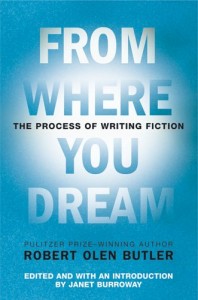 I started such a brilliant novel a few years ago. Oh it would have been groundbreaking, won awards, made me famous. At least that’s what I thought after I wrote the first chapter. It was about a girl who was searching through time for her long-lost boyfriend and soul mate, but he’d been born into another body and she didn’t know what he looked like. Brilliant! Okay, that’s debatable, but it really had desire. I had taken to heart what I’d learned from so many writing teachers and books: know what your character wants. She wanted this man. Bad.
I started such a brilliant novel a few years ago. Oh it would have been groundbreaking, won awards, made me famous. At least that’s what I thought after I wrote the first chapter. It was about a girl who was searching through time for her long-lost boyfriend and soul mate, but he’d been born into another body and she didn’t know what he looked like. Brilliant! Okay, that’s debatable, but it really had desire. I had taken to heart what I’d learned from so many writing teachers and books: know what your character wants. She wanted this man. Bad.
My favourite writing book at the time was Robert Olen Butler’s From Where You Dream, which I still recommend. Butler says that when he reads student work, the one thing missing from almost every manuscript is a sense, early on, of what the character yearns for.
But not my manuscript, I thought smugly. For a while I exasperated my writing group by asking, after every reading, “but…what does your character yearn for?” I had mastered something, and so I spread the word like a new convert.
So why did my story start to bore me? Why did my main character feel shrill and one-note after only a few more chapters? She had something she wanted; there were obstacles in her way; those obstacles escalated and became more difficult to overcome. And yet: zzzzzz.
I came to realize that I had started my main character’s desire at too high a level, and the story had nothing to build toward. Yes, I had an escalation of obstacles in my character’s way, but I also needed to have an escalation of her desire.
 Writers of cheesy Westerns know this already. Sure The Sheriff wants to catch The Outlaws. But when they kidnap His Girl? Then it’s personal. Escalation of desire.
Writers of cheesy Westerns know this already. Sure The Sheriff wants to catch The Outlaws. But when they kidnap His Girl? Then it’s personal. Escalation of desire.
Now that I’m working on a new novel, I’m looking for points where my main character’s desire can shift and come into focus, escalating as we move toward the climax. As you know if you read this blog, my new favourite writing book is The Anatomy of Story by the screen-writing guru John Truby. He says:
“If you start the desire at too high a level, it can’t build, and the plot will feel flat and repetitious.”
Oh John. Now you tell me.




 Hi! I'm Lena, a young adult fantasy author from Toronto.
Hi! I'm Lena, a young adult fantasy author from Toronto.
Great post, Lena! I’d never thought about it like that before, but it makes sense.
And that brilliant novel you started a few years ago? I’m still waiting to read the rest. W-a-i-t-i-n-g. You can’t just share an amazing first chapter and walk away!!! Go back, escalate her desire, whatever. But please write it!
I did write almost a whole draft, but it just wasn’t working. Like many of my novels, it was all back story and no front story.
Hello
That is a brilliant premise, Lena. And I agree with Erin that you should write the book. We yearn to read it!
Thanks Jocelyn. I will get back to it, I’m sure!
Ooh, you’re right—Just knowing what the character wants isn’t enough. I’m going to keep this in mind as I work through the project I’m currently revising. I’m contemplating putting a scene that I cut back in at this very moment. I had thought it was redundant, but now I think it was an important step in my character’s building desire. I knew I wrote it for something! ; Thanks!
Wow! So glad I could help, Robyn. Thanks for stopping by!
Wow, what a great point! I think a lot of writers need to hear this. Thanks for sharing!
Excellent point, Lena! I’m off to think about what my characters want now….
Glad you liked the post Kelly and Elizabeth! Thanks for dropping by.
Escalation of desire – hey, who couldn’t get into that!
I bought Truby’s Anatomy of Story for my Kobo tonight. My second Kobo purchase, my first being my very own (speaking of desire) 101 Ways to Dance.
PS You didn’t drive us TOO crazy.
Your second Kobo purchase? Boy, I hope the book lives up to that. We can discuss it when you’re done!